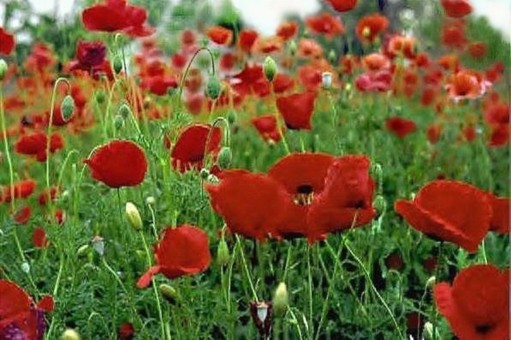The Eurovision Song Contest 2010 in Oslo has now come and gone and the winner this year was Germany's Lena with a number entitled "Satellite", nothing very special but nowhere as bad as some other winning entries in the past few years, so I have no major gripes about it. If not the best of a bad bunch, it is certainly not the worst and it might as well be the winner as any of the others.
As a citizen of the United Kingdom, which came LAST, I have to hang my head in shame from now until such time as we can take part again in the Eurovision Song Contest when, hopefully, we will improve our position, perhaps to second from last - after all, it will be impossible to do worse than last. Last is last and anything else has to be better.
As a citizen of the United Kingdom, which came LAST, I have to hang my head in shame from now until such time as we can take part again in the Eurovision Song Contest when, hopefully, we will improve our position, perhaps to second from last - after all, it will be impossible to do worse than last. Last is last and anything else has to be better.
We had of course the usual show of partisanship (although slightly less than last year) on the part of the East European nations which appear not to have been told that they can actually vote for West European nations. To their credit though, there were some aberrations where the odd vote was given by an East European country or former Soviet satellite to a country other than a neighbour or Mother Russia. The worst offenders were the former constituent nations of Yugoslavia which evidently like to keep it in the family for the most part and vote for each other. Good neighbourliness it may be, but sportsmanship it's not.
Once again many of the entries were hardly distinguishable from each other in their style, format and presentation. Inspired they were not. Bland and dreary would be a better description. And since most of the songs are now sung in English (since the rules were changed to allow singing out of one's national language), it's impossible to know what country is performing just from the song. This too has contributed to their losing their particular ethnic flavour and sounding pretty much like each other. Some countries, like France, Spain and Portugal, are still bravely holding out, for which they earn my admiration, but they are paying a terrible price for it as they languish low in the rankings every time. But there is the odd exception, of course.
It has to be said that in the early years of the contest the songs and performances had a distinctive cultural identity that provided welcome variety, in my opinion. Songs were sung in the national language of each country, in keeping with their particular cultural and national traditions, and accompanied by dances that reflected the culture of the particular country. Now, following a change in attitudes and especially in competition rules, we have ended up with an indistinguishable homogeneous mush of Western-style pop music which has no cultural identity and no connection with any country in particular. It all sounds the same and looks the same in this homogeneous global village that we have created.
In an effort to curry pan-European favour and win the contest, the competing countries have adopted the style and manner of the non-country-specific pop song which sounds the same, has the same inane lyrics and is performed in the same over-the-top fashion of something which, lacking any intrinsic merit, hopes to prevail with a backdrop of silly clownish antics. There is the usual crop of youths singing about an idealised something they know nothing about, love, and the usual expression of vacuous platitudes and inanities.
Yet for all that, the contest is prestigious, widely viewed, and can make or break reputations. As an idea, it was a good one, but unfortunately over the years it has been degraded and devalued by the steam-roller concept which annihilates variety and difference and reduces everything to just one uniformised and indistinguishable whole which began with the relaxation of the rule on the use of the national language and has progressed from there. And many of us who still watch it every year (and we are legion, it would seem), do so more out of an unhealthy curiosity and the reprehensible desire to do it down, than out of any real recognition of its worth. Long Live the Eurovision Song Contest!
Once again many of the entries were hardly distinguishable from each other in their style, format and presentation. Inspired they were not. Bland and dreary would be a better description. And since most of the songs are now sung in English (since the rules were changed to allow singing out of one's national language), it's impossible to know what country is performing just from the song. This too has contributed to their losing their particular ethnic flavour and sounding pretty much like each other. Some countries, like France, Spain and Portugal, are still bravely holding out, for which they earn my admiration, but they are paying a terrible price for it as they languish low in the rankings every time. But there is the odd exception, of course.
It has to be said that in the early years of the contest the songs and performances had a distinctive cultural identity that provided welcome variety, in my opinion. Songs were sung in the national language of each country, in keeping with their particular cultural and national traditions, and accompanied by dances that reflected the culture of the particular country. Now, following a change in attitudes and especially in competition rules, we have ended up with an indistinguishable homogeneous mush of Western-style pop music which has no cultural identity and no connection with any country in particular. It all sounds the same and looks the same in this homogeneous global village that we have created.
In an effort to curry pan-European favour and win the contest, the competing countries have adopted the style and manner of the non-country-specific pop song which sounds the same, has the same inane lyrics and is performed in the same over-the-top fashion of something which, lacking any intrinsic merit, hopes to prevail with a backdrop of silly clownish antics. There is the usual crop of youths singing about an idealised something they know nothing about, love, and the usual expression of vacuous platitudes and inanities.
Yet for all that, the contest is prestigious, widely viewed, and can make or break reputations. As an idea, it was a good one, but unfortunately over the years it has been degraded and devalued by the steam-roller concept which annihilates variety and difference and reduces everything to just one uniformised and indistinguishable whole which began with the relaxation of the rule on the use of the national language and has progressed from there. And many of us who still watch it every year (and we are legion, it would seem), do so more out of an unhealthy curiosity and the reprehensible desire to do it down, than out of any real recognition of its worth. Long Live the Eurovision Song Contest!


.jpg)
.jpg)

.jpg)
No comments:
Post a Comment